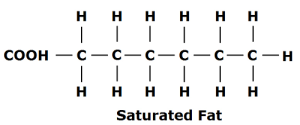
Psychology Today
Did that title make you sleepy? Did you just let out a big yawn? I know I’ve already yawned about five times just researching this very topic. So why is it that yawns are so contagious – even to the point where hearing or reading the word induces a yawn right on the spot?
The old myth claims that yawning helps draw in air, increasing blood pressure, heart rate and blood oxygen levels. Thus, enhancing alertness and motor skills. However, past research suggests that yawning has little to no affect on said processes.
Another commonly held explanation for yawning is known as the “hyperthermia hypothesis”. This theory suggests that yawning helps cool down our brains. A study conducted in 2007 revealed that holding a warm or cold pack on the participant’s forehead affected the consistency of yawning while watching a video of other people yawning. The cold packs decreased yawning, while the warm packs increased the strange phenomenon.
Some scientists also believe that yawning could just be a matter of social interaction. This theory suggests that yawning could be related to mimicry and empathy. In certain instances, we attempt to perceive things as others do and in turn, respond similarly to their responses. “I think what the study does is it supports the idea that empathy is the mechanism that underlies contagious yawns,” said Matthew Campbell of Emory University, who wasn’t involved in the study. “The idea is that it’s the same mechanism by which we catch smiles or frowns or fearful expressions.”
Past studies suggest the higher levels of empathy a person has, the more they are susceptible the yawn contagion. Even so, the closer you are to someone, the more likely you are to respond to their yawn. Research also shows that autistic children are not affected by contagious yawning, perhaps because autism is associated with poor social interaction and communication.
A recent study published March 14 in the journal PLOS ONE, is the most current research we have for the phenomenon of contagious yawning. The new research, found by the Duke Center for Human Genome Variation suggests that yawning may subside as we age and is not linked to empathy, mimicry, energy, or fatigue.
“The lack of association in our study between contagious yawning and empathy suggests that contagious yawning is not simply a product of one’s capacity for empathy,” said study author Elizabeth Cirulli, Ph.D., assistant professor of medicine at the Center for Human Genome Variation at Duke University School of Medicine.
The researchers recruited 328 participants who completed extensive research and questionnaires, involving health, fatigue, energy and empathy levels. They were then asked to view a video of people yawning, while researches recorded the consistency of their yawns. The team found that that some were more susceptible to the video, than others. In fact, some participants racked up to 15 yawns during the 3 minute video. Of the 328, 222 participants yawned at least once. According to Duke Medicine, “When verified across multiple testing sessions, the number of yawns was consistent, demonstrating that contagious yawning is a very stable trait.”
While the study did not find any strong link between yawning and empathy, fatigue, or energy. The only independent variable that did affect the results was age. The older the participant, the less limey they were to yawn. However, the authors do denote that age only accounted for 8% of the variability of the yawning responses.
“Age was the most important predictor of contagious yawning, and even age was not that important. The vast majority of variation in the contagious yawning response was just not explained,” Cirulli said.
What I find most intriguing about this phenomenon is that it still remains unsolved. Researchers are now looking into whether the yawn contagion could be due to genetic influences. The long term goal of the research team at Duke University is to hone down on the specific variability and biology involved in contagious yawning, so we can better understand diseases such as Schizophrenia and Autism. In finding the cause of the contagion, they may be able to build an understanding that could possibly shed light on these diseases.
“It is possible that if we find a genetic variant that makes people less likely to have contagious yawns, we might see that variant or variants of the same gene also associated with schizophrenia or autism,” Cirulli said. “Even if no association with a disease is found, a better understanding of the biology behind contagious yawning can inform us about the pathways involved in these conditions.”
References:
Duke Medicine. “Contagious Yawning a Mystery: May Not Be Linked to Empathy after All.” ScienceDaily. ScienceDaily, 14 Mar. 2014. Web. 04 Dec. 2014. <http://www.sciencedaily.com/releases/2014/03/140314211843.htm>.
Castro, Joseph. “Why Do We Yawn?” LiveScience. TechMedia Network, 23 Sept. 2013. Web. 04 Dec. 2014. <http://www.livescience.com/39862-why-do-we-yawn.html>.
Bryner, Jeanna. “Yawns More Contagious Among Friends.” LiveScience. TechMedia Network, 07 Dec. 2011. Web. 04 Dec. 2014. <http://www.livescience.com/17365-yawns-contagious-friends.html>.
Bartholomew, Alex J., and Elizabeth T. Cirulli. “Individual Variation in Contagious Yawning Susceptibility Is Highly Stable and Largely Unexplained by Empathy or Other Known Factors.” PLOS ONE:. Creative Commons Attribution, 14 Mar. 2014. Web. 04 Dec. 2014. <http://www.plosone.org/article/info%3Adoi%2F10.1371%2Fjournal.pone.0091773>.




 nt in most of the lipsticks, but not necessarily at really high levels, study author Katharine Hammond, a professor of environmental health sciences with the University of California Berkeley’s School of Public Health told The Huffington Post. “Low levels of metals may not create a risk, but as the exposure increases, the damage can increase.” Over the span of the female life, it’s pretty obvious that lipstick may be applied at least 100,000 times. And that is a potentially eye-opening number, applying all these potentially dangerous metals on their lips. The most terrifying part about lipstick is that it is applied on the lips and therefore has a high risk of ingestion. Ingesting these metals, could potentially lead to many different health risks. “”The metals that we were really most concerned about were cadmium, chromium, aluminum and manganese,” Hammond said, explaining that overexposure to each carries risks. Chronic, low level exposure to cadmium, for example, has been linked to serious kidney problems.
nt in most of the lipsticks, but not necessarily at really high levels, study author Katharine Hammond, a professor of environmental health sciences with the University of California Berkeley’s School of Public Health told The Huffington Post. “Low levels of metals may not create a risk, but as the exposure increases, the damage can increase.” Over the span of the female life, it’s pretty obvious that lipstick may be applied at least 100,000 times. And that is a potentially eye-opening number, applying all these potentially dangerous metals on their lips. The most terrifying part about lipstick is that it is applied on the lips and therefore has a high risk of ingestion. Ingesting these metals, could potentially lead to many different health risks. “”The metals that we were really most concerned about were cadmium, chromium, aluminum and manganese,” Hammond said, explaining that overexposure to each carries risks. Chronic, low level exposure to cadmium, for example, has been linked to serious kidney problems.



 s being at the gym for a long time mean that I am being more productive and getting stronger?
s being at the gym for a long time mean that I am being more productive and getting stronger?
















